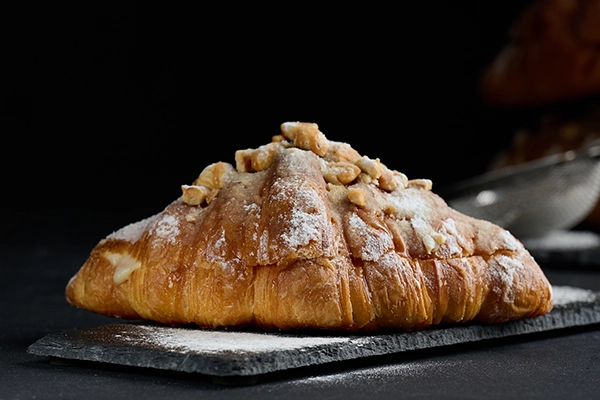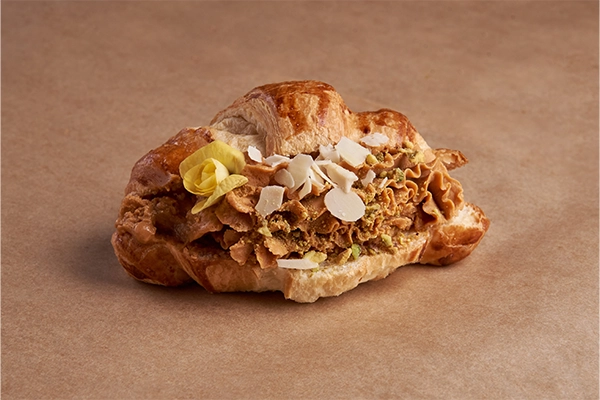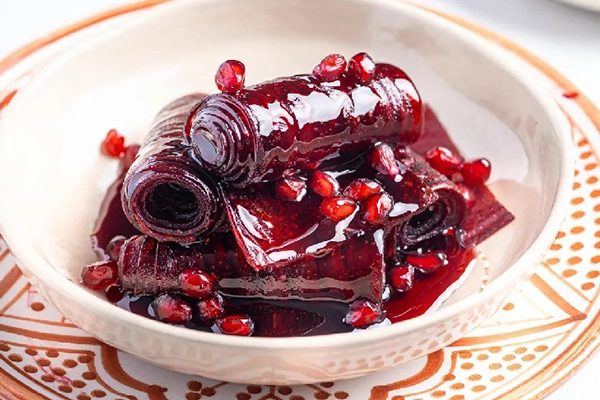The croissant, a buttery, flaky pastry that traces its origins to France, has evolved into an internationally adored treat. Known for its light and airy layers, soft inside, and crisp exterior, the croissant is crafted through a unique process involving folding dough with butter repeatedly to form numerous thin, delicate layers. Though traditionally served plain with a rich buttery taste, today, croissants types are offered in a variety of flavors globally, from chocolate and almond to fruity and even savory flavors like cheese.
This guide introduces 20 popular croissants types to try, each bringing a unique twist in taste and texture to satisfy every craving. We’ll also explore the benefits of croissants, nutritional information, tips on storage to maximize freshness, and advice on how many croissants a day is suitable for a balanced diet.

20 Must-Try Types of Croissants
Here’s a closer look at some of the most beloved croissants types, each with its own special flavor profile and texture.
- Classic French Butter Croissant: This staple is cherished for its light, flaky texture and rich butter scent, making it an essential addition to any French breakfast.
- Chocolate Lafayette Croissant: Ideal for chocolate lovers, this croissant is topped with a smooth chocolate cream for a dessert-like experience.
- Lotus Lafayette Croissant: With its creamy Lotus filling, this croissant has a unique aroma and smooth flavor perfect for a warm afternoon treat.
- Classic Chocolate Croissant: Filled with a creamy chocolate center, this classic variation is a popular choice for a quick mid-day snack.
- Pistachio Croissant: Nut enthusiasts will love this croissant filled with creamy pistachio, which provides a satisfying, nutritious option for a quick snack.
- Almond Croissant: Known as a slightly healthier choice, this croissant offers a light, crunchy texture and a nutty, buttery richness.
- Rainbow Croissant: Perfect for celebrations, this colorful croissant made with edible colors brightens any table.
- Walnut Croissant: A delicious option with a nutritious walnut filling, this croissant is ideal for anyone seeking a wholesome treat.
- Quick Yufka Dough Croissant: Made with yufka dough, this croissant is a time-saver, achieving a similar taste and texture in a fraction of the time.
- Cubed Croissant: A modern twist, this croissant is shaped as a cube and often filled with jam or crème brûlée.
- Red Velvet Croissant: This croissant features a red color and mild cocoa flavor, typically filled with cream cheese.
- Pistachio Lafayette Croissant: The delicate combination of pistachio and flaky pastry makes this croissant perfect for family gatherings.
- Strawberry Brioche Croissant: This croissant combines fresh strawberries with a soft brioche for a fruity, summer-inspired treat.
- Hazelnut Chocolate Croissant: For Nutella fans, this croissant combines the flavors of hazelnut and chocolate for a decadent treat.
- Salted Caramel Croissant: With a unique sweet-and-salty flavor profile, this caramel-filled croissant is a standout choice.
- Vanilla Cream Croissant: Lightly filled with vanilla cream, this croissant is ideal for those who love smooth, creamy flavors.
- Banana Chocolate Croissant: A hit with kids, this croissant combines fresh banana with chocolate for a playful treat.
- Espresso Croissant: For coffee enthusiasts, this croissant filled with espresso cream is a unique and flavorful option.
- Ham and Cheese Croissant: A savory classic, this croissant is a nutritious option that makes a hearty snack.
- Lemon Croissant: With a refreshing lemony taste, this croissant is a light, zesty choice for hot summer days.
These 20 croissants types offer something for every taste, from the rich and buttery to fruity, nutty, and savory combinations, proving that there’s a croissant for everyone.

Nutritional Benefits of Croissants
While often considered a treat, croissants come with some notable health perks. Beyond their buttery layers, croissants types provide essential minerals, vitamins, and quick energy, making them a pleasant and nourishing choice.
Essential Minerals
Most croissants types contain trace minerals like iron and selenium. Iron plays a crucial role in producing red blood cells, supporting good circulation and oxygen delivery throughout the body. Selenium, meanwhile, contributes to thyroid health and promotes cell growth. Enjoyed in moderation as part of a balanced diet, croissants can help maintain energy and health.
Vitamins A and B5
Croissants also contain vitamins A and B5, which are beneficial for skin and eye health as well as immune function. Vitamin B5 is also important for supporting energy production and metabolism, making these pastries a reasonable choice to incorporate into a healthy lifestyle.
Quick Energy Source
One of the main advantages of croissants types is their ability to provide a fast source of energy. With balanced levels of fats and carbohydrates, croissants make a light and effective breakfast option, delivering quick energy without excessive sugars and fats that are common in other pastries.
Croissant Calories
The calorie content of croissants depends on the type and any added fillings. On average, croissants calories for a plain croissant range between 160 and 200 calories. However, additional toppings, creams, or fillings can significantly increase the calorie count, making some croissants types a more indulgent treat.
Balancing Calories
When assessing croissants calories, balance is key. Enjoying croissants in moderation helps maintain daily caloric intake without exceeding dietary goals. For those looking to enjoy a croissant without overindulging, choosing one croissant can offer a delightful experience without affecting daily caloric goals.
Croissants Carbs and Macronutrient Content
Croissants, including various croissants types, are a moderate to high source of carbohydrates, providing around 15 to 20 grams of carbs per serving. These carbs, derived from flour and a small amount of sugar, deliver immediate energy and can raise blood sugar levels relatively quickly. However, pairing these carbs with fats found in croissants can help sustain energy longer compared to other sugary snacks.
Balance with Macronutrients
If you’re managing your carbohydrate intake, consider pairing croissants with protein or fiber-rich foods. Adding cheese, eggs, or yogurt alongside your croissant can moderate the impact of croissants carbs on blood sugar levels and keep you feeling fuller for longer.
How Long Croissants Last?
To maintain the freshness of your favorite croissants types, proper storage is essential. Here’s how to keep croissants at their best:
- Room Temperature: Wrap croissants in foil or place them in an airtight bag to keep them fresh for up to two days.
- Refrigeration: To extend freshness, keep croissants in the refrigerator where they can last up to a week. However, be mindful that refrigeration may slightly affect their texture.
- Freezing: For long-term storage, wrap each croissant individually in plastic wrap and place in a freezer-safe container. Croissants can last 1-2 months in the freezer. When ready to eat, thaw at room temperature to avoid a soggy texture.
With these storage methods, you can extend how long croissants types remain fresh and enjoy their delicious taste for longer.
How Many Croissants a Day?
When considering how many croissants a day to consume, moderation is key. While croissants are a delightful addition to any meal, they should ideally be enjoyed as an occasional treat or balanced breakfast item.
Balanced Meals
Croissants pair well with other foods, especially if balanced with protein and fiber-rich options to enhance fullness and maintain steady energy levels. A balanced breakfast with one croissant, some eggs, or yogurt provides a satisfying meal without overwhelming on carbs or calories.
Caloric Awareness
Croissants can contribute quickly to daily calorie intake, especially if consumed more than once a day. Choosing one croissant a day allows you to enjoy its taste without significant caloric impact.

Carbohydrate Pairing
Given the carbohydrate content of most croissants types, pairing them with fresh fruits, vegetables, or protein-rich items creates a balanced meal. This approach helps keep blood sugar levels steady and avoids potential energy crashes that high-carb snacks can sometimes cause.
Conclusion
From classic butter croissants to the more creative croissants types with fillings like pistachio, chocolate, or even ham and cheese, there’s a variety to satisfy every craving. Along with their versatility, croissants offer light nutritional benefits, including vitamins and minerals, but also require mindful portioning due to their caloric and carb content.










